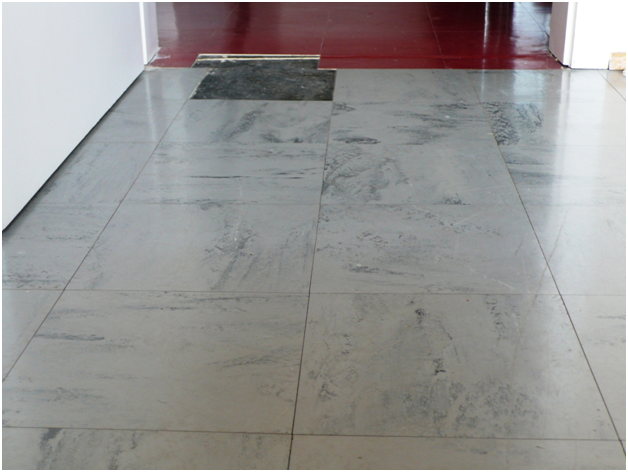Vinyl floors offer resilient and versatile surfaces to suit a range of interiors. Costing less than tiles, stone and solid wood and being more convenient than carpets, many property owners are opting for this polyvinyl chloride material. In addition to its low cost, it is easy to fit and maintain.

What Are the Advantages of a Vinyl Floor?
Vinyl floors come in a wide variety of choices, offering unique looks or the ability to replicate other materials like tiles, stone or hardwood. Made up of multiple layers, the hard-wearing material has durable properties including structural support as well as a protective layer placed on top of the printed design. The flooring is inexpensive and can easily be installed or repaired by a self-installer. The DIY Network provides a handy step-by-step guide for installing your own vinyl floor.
How Easily Maintained Is a Vinyl Floor?
One of the biggest pros of having a vinyl floor is the minimal maintenance required. Once fitted, all you need to do in order to keep your lovely new floor clean is sweep or vacuum it using a solid floor attachment. The average lifetime of a vinyl floor can vary between five and 30 years, depending on the quality of the flooring you choose.
If you accidentally damage your vinyl floor, treat it immediately with a product specifically designed for this type of floor. These products can be purchased through manufacturers, such as http://www.ukflooringdirect.co.uk/. Though deep scratches can generally only be concealed, small scuffs are usually easily treated with home products or a damp cloth.
Where and How Can I Install a Vinyl Floor?
Whether you are a homeowner, office owner or developer, vinyl floors are adaptable to suit your requirements. The material is a popular choice among those looking to fit a floor on a budget, because it is by nature very straightforward to install (most vinyl tiles are self-stick items). Vinyl floors are well-suited to the modern home as they are a cheaper alternative to tiling a bathroom floor, for example, and are equally convenient for office spaces whose primary concern is durability. Vinyl floors can be fitted on top of most surfaces but it is not recommended that you install over two or more pre-existing layers as this could lead to imperfections.
